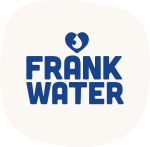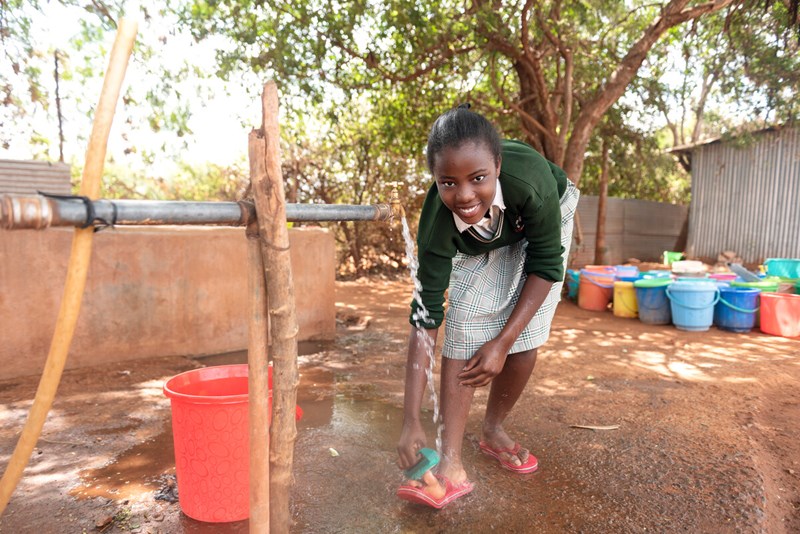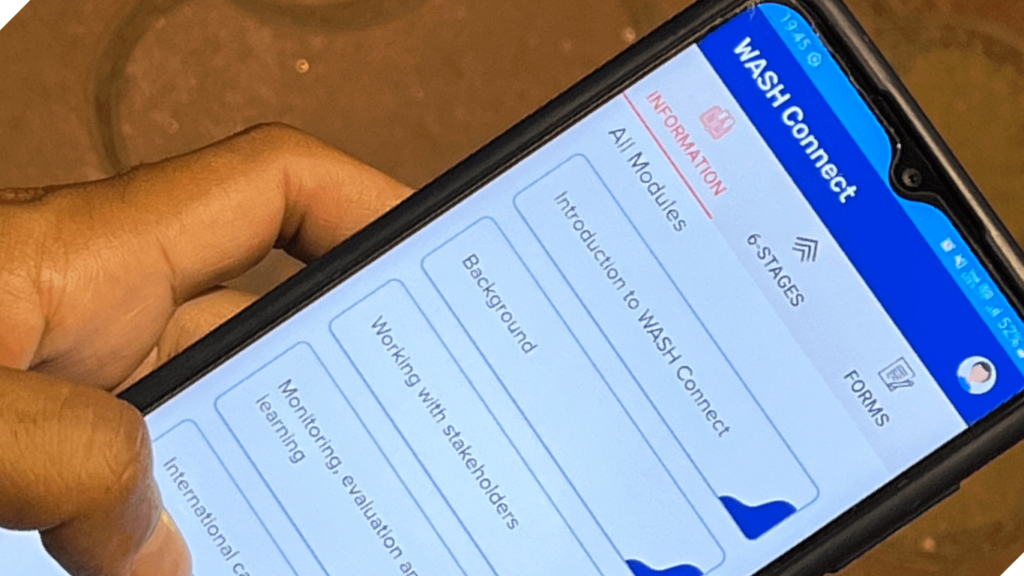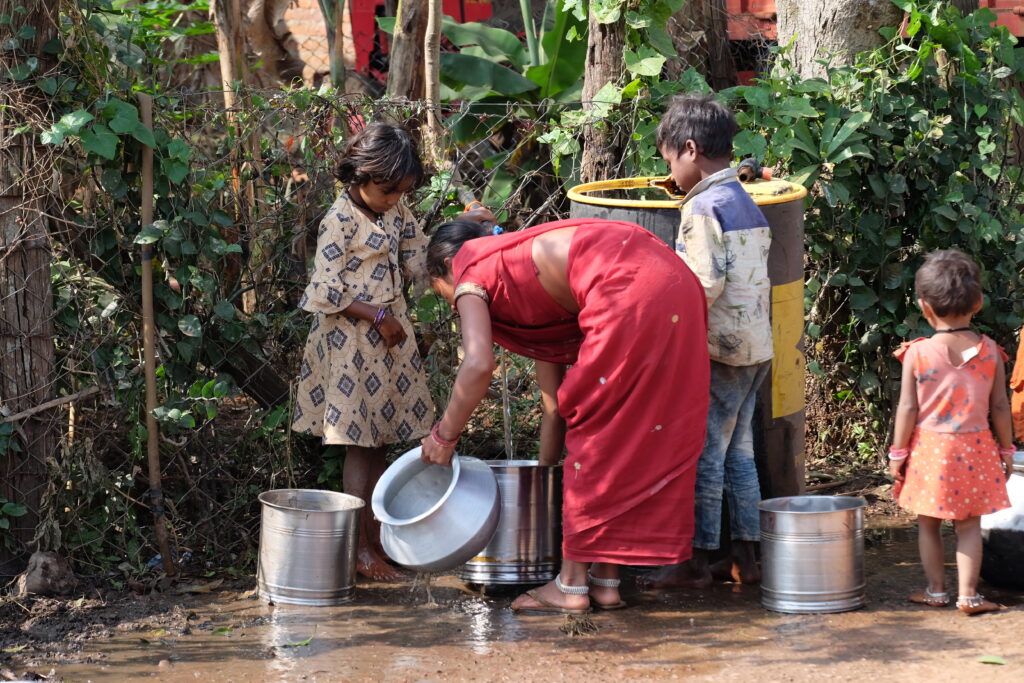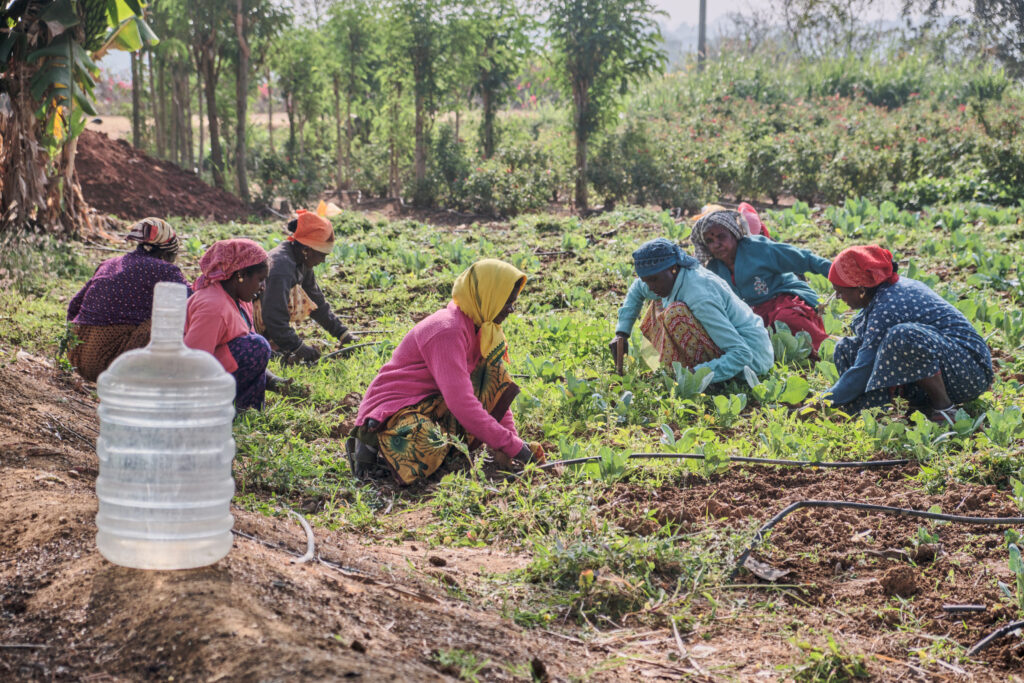In September 2022, Frank Water and our strategic partner Arup partnered with international NGO Amref Health Africa to trial our global water, sanitation, and hygiene (WASH) Basins Toolkit and App in Kenya’s Kajiado county.
What is the WASH Basins Toolkit and App (WASH Tapp)?
Currently, no internationally agreed framework outlines how water is managed at a community level. The WASH Basins Toolkit was initially developed in 2020 by Frank Water and Arup for our projects in India, guiding users through a standardised six-stage process of developing Water Security Plans (WSP) using an integrated water resource management (IWRM) approach. Our App, WASH Connect, provides a clear framework to collect and analyse the data needed to ensure WSPs are tailored to local communities and that water resources are managed sustainably. Once created, WSPs are then presented to local governments and funders to implement the WASH initiatives identified.
Expanding to Kenya
Following a successful three years in India that ensured 40 communities now have a water-secure future, Frank Water and Arup believed it was important to expand the Toolkit’s reach and support communities across the globe to have access to WASH. As the Toolkit was originally created with the Indian context in mind, it was adapted to ensure it was flexible in its application to various countries and contexts, using globally recognisable methodologies and principles. Frank Water and Arup then partnered with Amref to trial the Toolkit in Kenya and create two WSPs. Kenya is one of the most water-scarce countries in the world, facing depleting natural resources exacerbated by climate change. Around 60% of Kenyans have access to safe drinking water, whereas only 29% have access to basic sanitation, indicating the importance of utilising the Toolkit and App to ensure water security for some of the most marginalised communities.
The approach began with three training workshops run by Frank Water to guide the Amref team through the content of the Toolkit and App. Amref then selected the trial locations of Morgo and Kippa located within the southern county of Kajiado, conducting Needs Assessments to develop an understanding of local communities’ WASH uses and needs. To ensure the data collection was thorough, data collection forms on the App were updated according to feedback from Amref throughout the process. All partners then analysed the field, hydrological and geospatial data to understand the scale and type of WASH initiatives required, feeding directly into the WSP that included a WASH delivery and water resources monitoring plan. Proposed solutions and mitigations outlined in the WSP, such as rainwater harvesting and institutional strengthening, ensure sustainable water supply for present and future generations. Alongside this, a Master’s student from the University of Bristol carried out an independent research project to evaluate the trial of the Toolkit with Amref.
Amref successfully followed the Toolkit’s six-stage process from data collection to water balance assessments and a project plan, utilising the WASH Basins Toolkit to create two comprehensive WSPs that support creating a water-secure future for 11,600 people. The trial proved that the Toolkit is a useful standardised approach to IWRM, providing a clear methodology that was mindful of local water usage and community needs.
And beyond…
At present, we are working with Amref to expand the utilisation of the App and Toolkit to create WSPs across their numerous WASH programmes in Kenya, and hopefully the remaining East African region soon.
